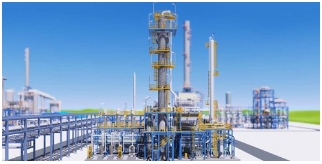
The Gothenburg plant will produce 200,000 tons of renewable fuels annually and can utilize flexible feedstocks, including used cooking oil, animal fats, and tall oil fatty acids from paper and pulp mills. In addition to SAF, the biorefinery will produce biodiesel, bio-naphtha, and bio liquid petroleum gas. St1 reported the fuels produced at the biorefinery will reduce road and air traffic emissions by about 500,000 tons of CO₂ annually compared to fossil fuels.
"The Gothenburg biorefinery is a significant milestone in our energy transition roadmap and an important step in St1's journey towards more sustainable energy production. With Honeywell’s Ecofining technology helps us taking an important step toward realizing our vision of becoming the leading producer and seller of CO2-aware energy,” said Miika Eerola, St1 Head of Refining, Projects & HSSE.
The SAF produced at St1’s facility will support the European Union’s ReFuelEU initiative, which requires aviation fuel to contain a blend of at least 2% SAF beginning in 2025. The required percentage gradually increases over time, eventually increasing to 70% by 2050, contributing to the European Green Deal's goal of climate neutrality that follows the same timeline.
Honeywell helped pioneer SAF production with its Ecofining process, which was developed in collaboration with Eni S.p.A. and has been used to produce SAF commercially since 2016. The company now offers solutions across a range of feedstocks to meet the rapidly growing demand for renewable fuels, including SAF. When blended with traditional jet fuel, SAF can reduce greenhouse gas emissions by up to 80% compared to conventional fossil fuels.
"For more than a decade, our Ecofining technology has been an innovator in the renewable energy sector,” said Barry Glickman, vice president and General Manager of Honeywell Sustainable Technology Solutions. “In partnership with St1, we are proud to be supporting the global energy transition and the European Union’s ReFuelEU initiative by providing a proven technology for reducing CO2 emissions."
More than 50 sites globally have licensed Honeywell's SAF technologies, with refineries projected to exceed a combined capacity of more than 500,000 barrels of renewable fuel per day when fully operational. Beyond SAF, Honeywell's renewable fuels portfolio also includes Ethanol to Jet technology and eFining, which converts green hydrogen and carbon dioxide into e-fuels.